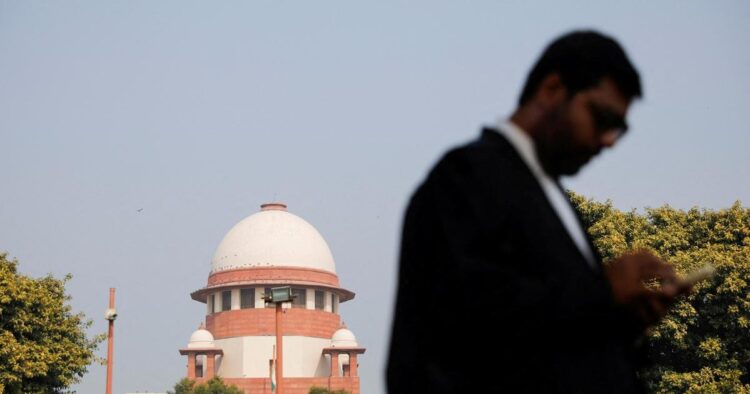The Supreme Court of India is currently hearing several petitions that have challenged the constitutional validity of the Waqf (Amendment) Act, 2025. A three-judge bench, headed by Chief Justice Sanjiv Khanna and comprising Justices Sanjay Kumar and KV Viswanathan, began hearing arguments from different petitioners on Wednesday.
Senior advocate Kapil Sibal, appearing for the petitioners, argued that many parts of the Waqf Act go against Article 26 of the Constitution, which gives every religious group the freedom to manage its own religious affairs. He also pointed out that the law requires a person to prove they have been practising Islam for five years to create a Waqf, which, according to him, gives the state power to decide someone’s faith.
In response, Chief Justice Khanna said that Article 26 does not stop the government from making laws, and that this article is universal and secular. It applies to all religious communities equally. The court also emphasized that ancient and historic monuments like the Jama Masjid will remain protected under the law.
The Congress Party had earlier said that it would challenge the law, calling it unconstitutional and claiming it could create religious divisions. Congress MP Mohammad Jawed filed a petition arguing that the law violates several fundamental rights, including Articles 14, 25, 26, 29, and 300A of the Constitution.
Another prominent petitioner is AIMIM chief Asaduddin Owaisi, who also believes that the law is against basic constitutional rights. Several civil rights groups and religious organizations, such as Jamiat Ulema-i-Hind, AIMPLB, SDPI, and political leaders like Amanatullah Khan have also filed petitions in court.
The Central Government, led by the BJP, has clarified that the Waqf (Amendment) Act is not meant to harm anyone. In fact, it aims to bring transparency and reform to the way Waqf properties are managed across India.
Minority Affairs Minister Kiren Rijiju said that the law does not interfere with existing Waqf properties, and it is designed to help the Muslim community by making the system more effective. He highlighted that the law reflects the government’s principle of “Sabka Saath, Sabka Vikas”, meaning development for all.
Six BJP-ruled states, Haryana, Maharashtra, Madhya Pradesh, Rajasthan, Chhattisgarh, and Assam, have supported the law in court and filed pleas showing how it helps improve Waqf property management.
Haryana pointed out that there are several long-pending issues like incomplete property surveys and poor recordkeeping. The state believes that the new law will create a more organized and transparent system.
Maharashtra said it would assist the court with parliamentary documents and national data to support the Act. It also promised to present examples of how religious property laws work in different states.
Madhya Pradesh said the Act introduces a technology-driven system for Waqf property management, which will help beneficiaries and bring accountability to the system.
The Rajasthan government supported a major feature of the amended Act: a 90-day public notice in newspapers before declaring any property as Waqf. This allows anyone affected to raise objections, ensuring fairness and due process.
Chhattisgarh highlighted the importance of a digital portal that will help track Waqf properties more effectively. It will help in auditing, identifying misuse, and ensuring proper coordination with local authorities.
Assam focused on Section 3E of the new law, which protects tribal lands under the Fifth and Sixth Schedules of the Constitution from being declared as Waqf. Since eight of Assam’s districts fall under the Sixth Schedule, the state has a direct interest in the law’s outcome.
The Uttarakhand Waqf Board has also come forward in support of the law. It has requested the Supreme Court to allow it to become a part of the hearings and present its view on why the Act is beneficial and much-needed for reform in Waqf property governance.
The term Waqf refers to a donation or endowment made by a Muslim for religious or charitable purposes, like mosques, schools, or hospitals. Once something is declared Waqf, it is usually managed by a caretaker called a Mutawalli.
In the past, there have been many issues like a lack of transparency, encroachment, or mismanagement of Waqf properties. The government says the Waqf (Amendment) Act, 2025, is aimed at solving these long-standing problems by bringing uniform procedures, digital records, and more public accountability.
As the case continues in the Supreme Court, all eyes are on the final judgment. While the petitioners are raising concerns about fundamental rights and religious freedom, the Central Government and several states argue that the new law will help the poor, improve governance, and bring transparency to the system.
The court’s role now is to balance the need for reform with the protection of constitutional rights, a task that will shape the future of Waqf property management in India.

















Comments